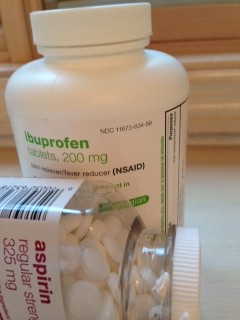Mommy Makeovers: a Growing Trend
December 26th, 2013
Women are postponing motherhood, waiting longer to have children today. What is the best age to have a baby? Many factors enter into this equation. From a purely biological viewpoint, the late teens or early twenties are best biologically, according to John Mirowsky, a sociologist at the University of Texas at Austin. Women in their twenties are least likely to have developed health problems that would put them or their babies at risk, and they have the lowest rates of miscarriage, ectopic pregnancy, stillbirth, and infertility. Physically speaking, it is apparent that younger women are able to weather pregnancy and bounce back more quickly than older moms.
Perhaps the growing trend of considering a Mommy Makeover reflects the desire to erase the physical toll that later childbearing sometimes brings. Many will agree that having children at any age is one of the most rewarding experiences a mother will have. However, the physical effects of pregnancy, especially multiple pregnancies, can leave unwanted and unflattering changes to your body. Common complaints from my patients include, loss of breast fullness and/or sagging, excess abdominal skin, stretched or torn abdominal muscles and umbilical hernia. Even if you adhere to the 25-35 pound weight gain during pregnancy, it’s often more difficult to get back into shape the older you are when you have a baby. No amount of exercise or weight loss can fix some of these problems. Fortunately, cosmetic surgery is an option to help a patient return to a pre-pregnancy appearance and restore the natural feminine shape following their pregnancy. Some of my happiest patients are women of all age-ranges who have chosen Mommy Makeovers.
Be sure to watch KSTP-TV’s Twin Cities Live, when we share a personal story of a Mommy Makeover.
Aspirin Before Surgery
October 17th, 2013
 Preparation for surgery is essential to make the post-operative course for patients easier and safer. Both pain and risk of complications can be reduced if you follow doctors orders before and after your surgery. Here is one of my top recommendations prior to surgery on our Do and Don’t list for our patients (other surgeons may have different recommendations). It is important for patients to follow whatever instructions their chosen surgeon provides.
Preparation for surgery is essential to make the post-operative course for patients easier and safer. Both pain and risk of complications can be reduced if you follow doctors orders before and after your surgery. Here is one of my top recommendations prior to surgery on our Do and Don’t list for our patients (other surgeons may have different recommendations). It is important for patients to follow whatever instructions their chosen surgeon provides.
Discontinue taking all aspirin and NSIDs, such as Ibuprofen, before surgery. Both of these drugs affect platelet function in the blood. The result is a reduced ability to clot the blood when tissue is divided (cut) in surgery. This can lead to unwanted bleeding and bruising after surgery. These effects last for two weeks. Therefore, I recommend that patients stop taking these medications two weeks before surgery.
Most surgeons give their patients detailed written instructions before surgery. Read All Your Materials. We provide our patients with comprehensive before surgery instructions, after surgery instructions, a list of medications to avoid, and the surgical consent. Go over the documents a couple of times and make sure you understand everything. If you have questions, call or make an appointment and get all your questions answered. A well-informed patient is a goal that we strive for, because even cosmetic surgery is still surgery.
Surgery is by and large safe. However, complications are always a risk with any surgical procedure. You can help in reducing your post-operative risks by following a few simple recommendations before surgery. Detailed Before and After Nipntuck Instructions are included on our site. Please use our search function for our instructions and a Q&A for a specific procedure.
